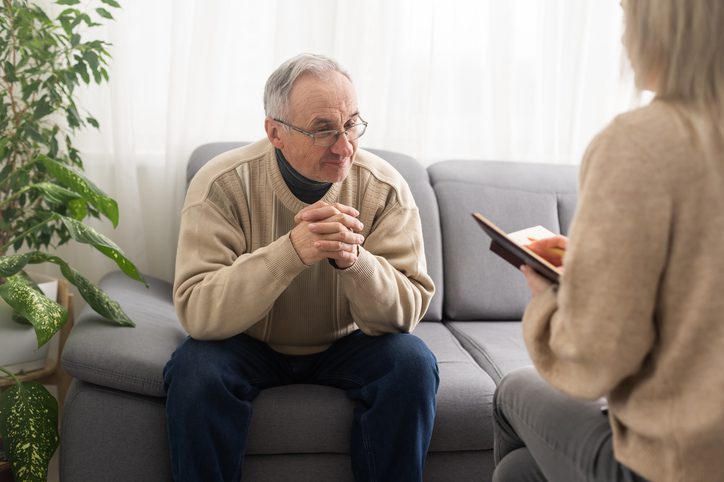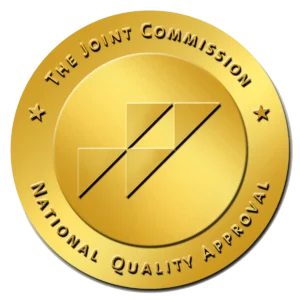America is aging. The number of Americans aged 65 and older is expected to more than double by 2060, and the 65-plus age group’s share of the total population will rise to nearly 24 percent from currently 15 percent. The challenges and opportunities involved in this trend were the focus of a recent presentation by nurses Amy Zellers and Elisha Miller, and psychiatrist Norriece Gibson as part of the Williamsburg Place Lecture Series.
Amy Zellers explained that already more than 20 percent of American adults aged 60 and over suffer from mental or neuropsychiatric disorders such as Alzheimer’s or Parkinson’s disease. Despite a growing need, the geriatric population continues to face serious barriers when it comes to accessing behavioral health services. The first one is the limited number of healthcare professionals with psychiatric specialty to provide treatment to this population. There is a shortage of such providers across the entire United States.
A 2017 report from the physician search firm Merritt Hawkins stated, “the shortage of psychiatrists is an escalating crisis … of more severity than shortages faced in virtually any other specialty.” Because of this shortage, primary care providers (PCPs) carry the main burden of diagnosis but many of those physicians had very little training in recognizing mental illness in the elderly. As Zellers explained, it’s not an easy diagnosis. “Clinical presentation of aging adults may be different from other adults and mental health symptoms are often masked by multiple medical issues.” And chronic physical conditions frequently take precedence over emotional conditions.
In addition to these provider barriers, patients face placement barriers as well, after the closure of many state hospitals over the years, resulting in an even more limited number of available psychiatric facilities.
There are also barriers put up by the patients themselves. Many are in denial of needing treatment, thinking they don’t need therapy because they are not “crazy” after all. Because “they were taught to white-knuckle it,” they don’t get the help they need, said Zellers. “But it’s certainly a red flag, if episodes of ‘sadness’ lasts for weeks.”
Because of the aforementioned barriers and limitations it is important that healthcare professionals obtain a complete medical history, including any previous psychiatric history, any family history, and any suicide attempt, even if it happened decades before. The comprehensive patient “history should include assessing for trauma, including any history of sexual assault, domestic violence, or traumatic loss,” Zellers said.
A thorough history gives the healthcare professional a better chance to recognize early mental health symptoms such as memory loss, paranoia, aches and pains, social withdrawal, confusion, and loss of energy. If behavioral health symptoms are recognized early enough, intervention has a better chance of success.
In her part of the presentation, Pavilion nurse Elisha Miller focused on a little known problem with Virginia’s law concerning medical power of attorney. Many families are unaware that a so-called advance medical directive—the medical power of attorney in the Commonwealth—is not necessarily sufficient for the named agent to admit the person a behavioral health facility like The Pavilion.
This situation can cause problems. If loved ones want somebody admitted to a mental health facility but they don’t have psychiatric power of attorney, they will not get the help they need. “It’s a dilemma for us, too,” said Miller. “At the Pavilion, we want to help but if the daughter or son doesn’t have the appropriate power of attorney we won’t be able to admit the parent. And they can’t sign themselves in, so they go to a non-psychiatric facility or home with their children who might be overwhelmed with the task of caring for them.”
The only other way to be admitted requires an emergency custody order (ECO) or a temporary detention order (TDO), both issued by a magistrate but these can be traumatic for the patient as the TDO involves being detained by the police, often in handcuffs.
Luckily, that scenario can be avoided by adding a mental health paragraph to the advance medical directive. Miller gave an example of such verbiage to be inserted in the document:
“To authorize my admission to a healthcare facility for the treatment of mental illness as permitted by law, even if I object.”
With such an advance directive, families can still make the call on what happens to their loved one and not leave admission to the courts and law enforcement. More information about advance directives in Virginia can be found at virginiaadvancedirectives.org/.
Psychiatrist Norriece Gibson concluded the presentation with a case study of a 59-year-old man with depression. The retired plumber was suffering from osteo-arthritis, experienced a lot of pain, and had a history of seizure disorder, alcohol misuse, and suicidal ideation. In terms of the early symptoms discussed earlier, Dr. Gibson’s patient presented with a lack of social support, low income, lack of housing, and a combination of alcohol misuse and antidepressant medications. He described alcohol as the only thing that helped with his depression—a clear red flag. “If my patient hadn’t mentioned alcohol and being suicidal, it’s unlikely that he would have gotten immediate help because the assumption could have been that he was depressed because of his psycho-social circumstances,” Gibson said. She emphasized the importance of integrated care. As a psychiatrist, she couldn’t treat the man’s physical condition but the arthritis was to a large extent responsible for his depression and co-occurring alcohol misuse.
“There are no medications that can fix those kinds of external circumstances,” said Gibson. A comprehensive therapy is best is this case but it requires resources, time, money, and support—all possible barriers. “If we can alleviate some of these barriers we can be of greater assistance to our clients,” concluded Dr. Gibson.






